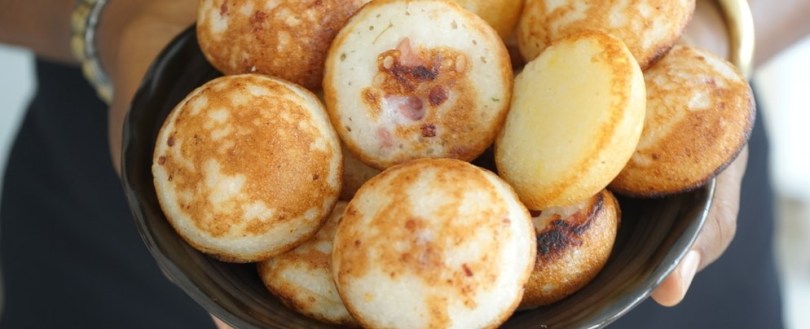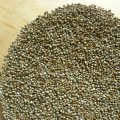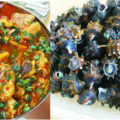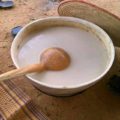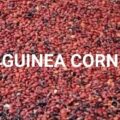Masa also known as Waina or Sinasir is a fermented puff batter of rice, millet, maize, or sorghum cooked in a pan with individual cuplike depressions. It resembles the Indian idli in shape and dosa in taste. It is different from the maize masa used in tortillas in Mexico and Central America. Masa is consumed in various forms by all age groups in the northern states of Nigeria and many other Sahelian African countries (Mali, Burkina Faso, Niger, Chad, and Ghana). It is the principal ingredient of a variety of cereal-based foods and is a good source of income for the women who prepare the traditional product for sale.
In African countries, traditional foods, such as masa, play a critical role in the nutrition of the population. Like other single-cereal-based foods, masa protein is deficient in the essential amino acid lysine. Grain legumes and oilseeds are higher in protein density and lysine. Therefore, a combination of cereals and grain legumes in traditional preparations of masa will have improved nutritive value. Moreover, it is a way of increasing grain legume consumption in Africa, as is done in India for dosa and idli.
Ingredients Used in Making Masa
Milled raw rice: This rice has had its husk, bran, and germ removed. This alters the flavor, texture, and appearance of the rice and helps prevent spoilage and extend its storage life. After milling, the rice is polished, resulting in a seed with a bright, white, shiny appearance.
Pearl millet: This is the most widely grown type of millet. It has been grown in Africa and the Indian subcontinent since prehistoric times. The center of diversity, and suggested area of domestication, for the crop, is in the Sahel zone of West Africa.
Other ingredients for making masa include cowpea (beans), groundnut, vegetable oil, sugar, salt, skim milk powder, starch, tamarind fruit pulp, and active dried bakers yeast (Saccharomyces cerevisiae)
Health Benefits of Masa (Waina)
Rich In magnesium and sodium: Magnesium is needed for more than 300 biochemical reactions in the body. It helps to maintain normal nerve and muscle function, supports a healthy immune system, keeps the heartbeat steady, and helps bones remain strong. It also helps adjust blood glucose levels. It aids in the production of energy and protein. Despite its continued vilification, sodium is a necessary nutrient for good health. It’s one of your body’s electrolytes, which are minerals that create electrically charged ions. A major source of sodium in most diets is added salt in the form of sodium chloride — which is 40% sodium and 60% chloride by weight.
Lysine: In Masa, there are significant improvements in the level of lysine. Lysine is a building block for protein. It’s an essential amino acid because your body cannot make it, so you need to obtain it from food. It’s important for normal growth and muscle turnover and is used to form carnitine, a substance found in most cells of your body.
Threonine: Another important nutrient in masa is Threonine an immunostimulant that promotes the growth of the thymus gland. It also can probably promote cell immune defense function. This amino acid has been useful in the treatment of genetic spasticity disorders and multiple sclerosis.
Fiber: Masa is a very rich source of fiber especially men served with vegetables. On its own masa has an apparent digestibility index of (82%-88%), and net protein utilization (74%-79%). Dietary fiber is important for our digestive health and regular bowel movements. Fibre also helps you feel fuller for longer, can improve cholesterol and blood sugar levels, and can assist in preventing some diseases such as diabetes, heart disease, and bowel cancer.
Energy: Rice and millet the major component of masa are rich sources of carbohydrates the primary source of energy. Eating masa provides a good source of energy. Rice can serve as a good source of B vitamins (including thiamin, niacin, and riboflavin) and iron. Rice is also an excellent source of manganese and magnesium. Brown rice provides more vitamins than white rice.
Niacin: Also known as vitamin B-3, niacin is another nutrient found in waina. Soaking rice in water is one of the steps in masa making that increase the absorption of this vitamin. vitamin B3 is an important nutrient. In fact, every part of your body needs it to function properly. As a supplement, niacin may help lower cholesterol, ease arthritis and boost brain function, among other benefits.
Selenium: Masa or waina is also rich in selenium which plays a critical role in metabolism and thyroid function and helps protect your body from damage caused by oxidative stress. What’s more, selenium may help boost your immune system, slow age-related mental decline, and even reduce your risk of heart disease. Selenium is essential for male fertility, being required for testosterone biosynthesis and the formation and normal development of spermatozoa.


